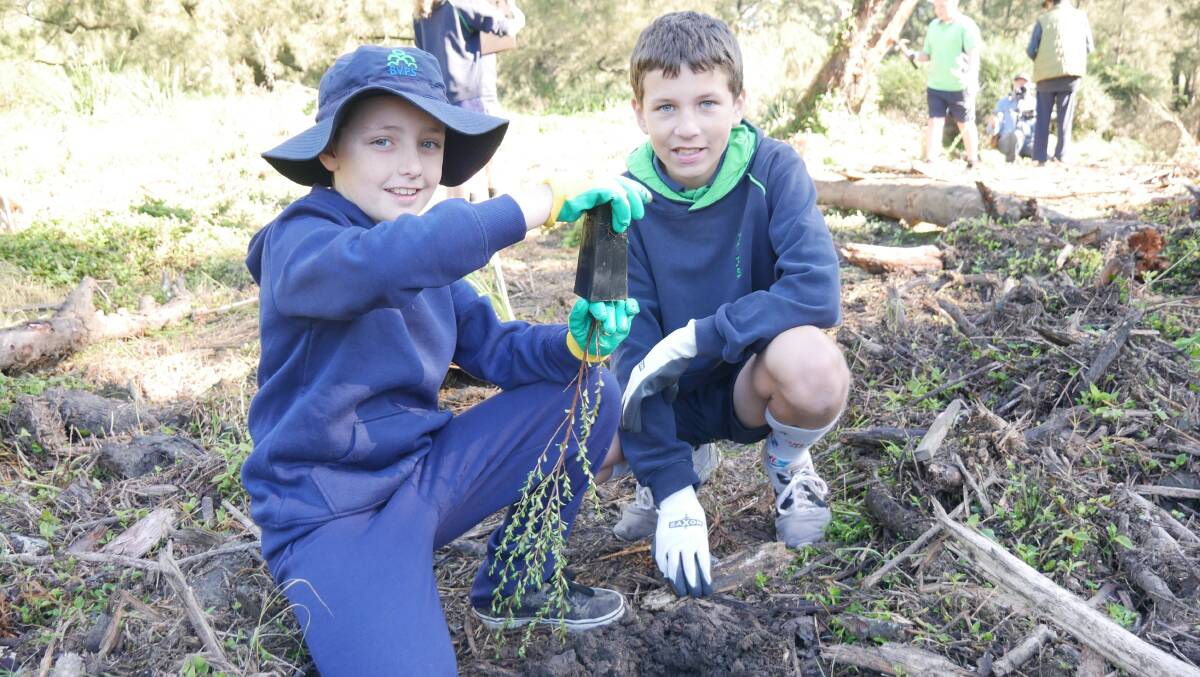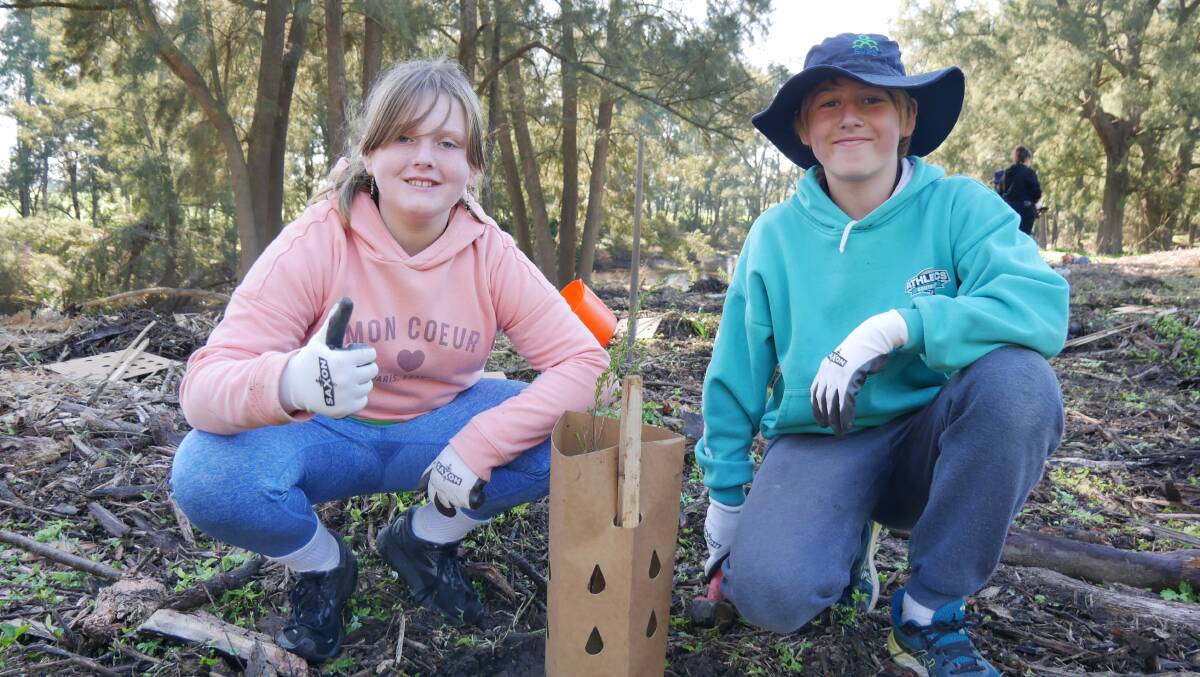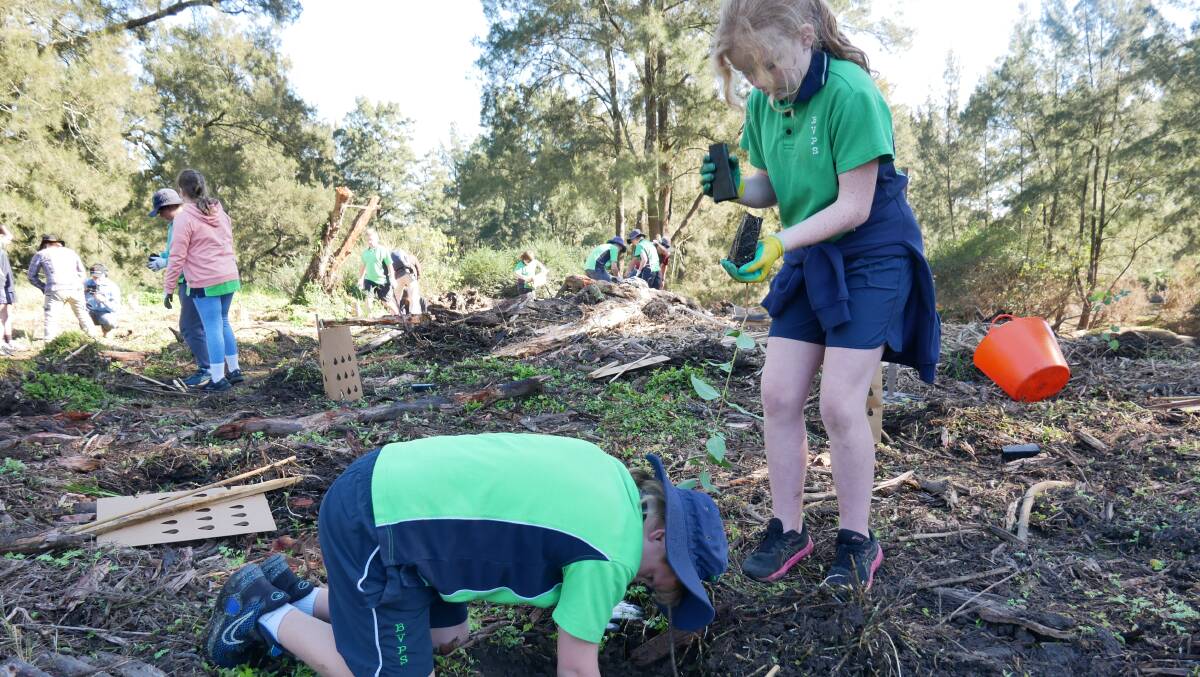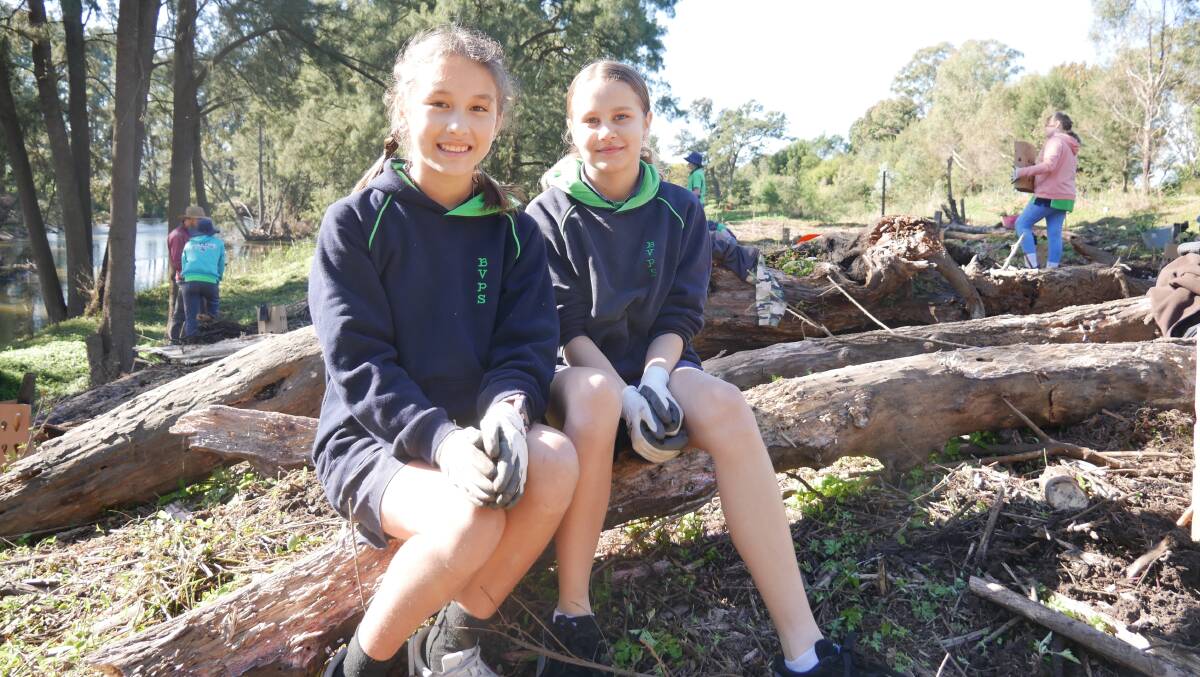Children from Bega Valley Public School have planted 100 trees in an effort to create more stable habitat for native fauna.
Subscribe now for unlimited access.
$0/
(min cost $0)
or signup to continue reading

BVPS pupils joined Bega River and Wetlands Landcare (BRAWL) community coordinator Erin Moon in a morning tree-planting workshop along the Bega River on Monday, May 9.
The schoolchildren, mostly from Year 6, listened to a talk given by Ms Moon who walked them through the big weed infestation issue along the river system that has headwaters at Stony Creek.
The spot on the Bega River where the pupils planted was previously mostly full of mature privets, whose seeds were likely spread around the area by birds that love the plant's juicy berries.
"The privets are our biggest problem here but we also have some terrible weeds, we have the African boxthorn which is really spikey and we've got Madeira vine and Turkey rhubarb," said Ms Moon.
Ms Moon also took another two groups of children from Mumbulla School for Rudolf Steiner Education on Monday, May 9, who planted an additional 240 trees along the river.
The tree-planting activity was just one of many that would take place over the coming three years thanks to a significant NSW Environmental Trust grant awarded to BRAWL.

The grant facilitated the hiring of two professional bush regeneration contractors who were able to do most of the labour intensive work, meaning the area that pupils were working on was already cleared and mulched prior to the workshop.
Ms Moon demonstrated how to plant the native saplings and how to set up the cardboard barrier to keep the plant safe from being trampled or overcome by the aggressive weeds as they grew back.
READ ALSO:
"Over the next three years we will be putting in plants and maintaining the weeds as they come up as they will continue to come back for years and years," said Ms Moon.
Through collaboration between the schools and BRAWL, the tree planting activity was devised, an initiative that would continue with pupils throughout the three year grant.

"It's all about stewardship and connection to this area and an understanding of why its important to regenerate these landscapes and particularly river areas," said Ms Moon on why the activity was important to the young learners.
She also sent out resources to be used in the classrooms to continue educating the youth on the river system and its ecology.
"Those will look at what the pressures are for this area, so weeds, floods and drought, and what we have to do to be able to improve the environment," said Ms Moon.

"With a changing climate and more extreme events there is going to be a lot of pressure on the actual river systems and the stability of the soils and sediment, but also for animals moving through the landscape.
"When you build corridors through the landscape animals can go from areas where it's harsh, like in extreme heat, wind, bushfires, or floods, they've got somewhere to escape and move so they can be safe. Working on the river areas means giving them suitable habitat in time."
Since the trees needed time to grow and create hollows for native wildlife, Ms Moon said BRAWL members would be working on creating habitat boxes for sugar gliders that had been identified in the area.
Some of the funding would also be going into the purchase of cameras that would allow the group to peer into the habitat boxes to monitor and evaluate their effectiveness.

BVPS pupils Nelly and Kailani said they did not anticipate just how much work would be needed to plant the saplings.
"Planting trees is pretty hard work," said Kailani, "you have to push the stake through the cardboard and that's pretty difficult."
Nelly said she was surprised to learn how weeds travelled and traversed the the river systems.
"There's just too many weeds for the trees to survive," she said.
They said it was important for them to participant in workshops such as this because it widened their knowledge of their local ecosystem and got them involved with activities that protected their environment.
Kailani said she showed her own sense of eco stewardship through gardening and growing vegetables with her dad. Nelly said she had been involved with climate strikes and often collected rubbish at the beach with her family.


